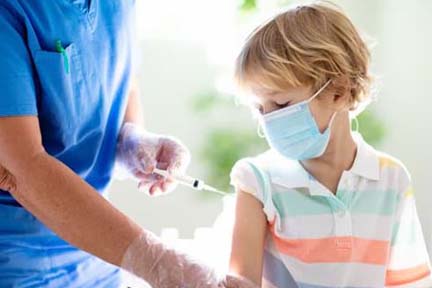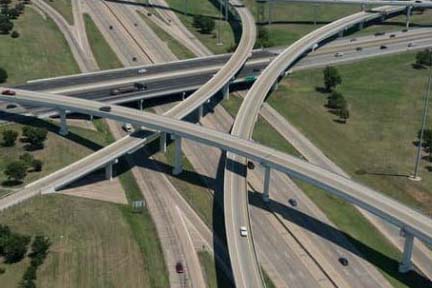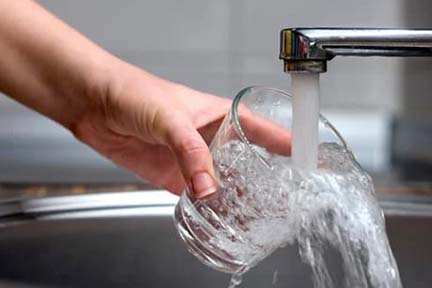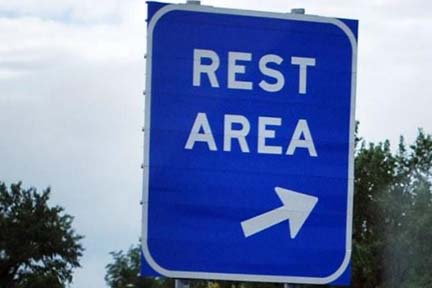
COVID-19 Vaccine Will Keep Our Kids In School
Pediatric Doses Of COVID-19 Vaccine Will Keep Our Kids In School
Oakland County to Begin School-Based Clinics
Pontiac, Michigan – The pediatric dose of the COVID-19 vaccine is the best way to keep Oakland County kids safe, healthy, and in school. Pediatricians joined County Executive Dave Coulter with that message to invite parents and guardians to one of Oakland County Health Division’s school-based pediatric COVID-19 vaccine clinics which begin Monday, November 8.
“When the FDA and the CDC put their stamp of approval on giving the COVID-19 vaccine to kids this week, it was another reason for hope,” Coulter said. “Hope that this could signal a quicker end to this public health crisis and move toward safer classrooms, family gatherings during the holidays and other milestone celebrations.”
The first clinic will be at Hazel Park High School, 23400 Hughes Ave. in Hazel Park on Monday, November 8, from 4:00-7:30 p.m. The appointment slots for the first clinic are already full. Oakland County residents 5-18 years old do not need to attend the school or live in the school district to receive the pediatric dose of COVID-19 vaccine. They may come from anywhere in the county to any of the school-based clinics.
The pediatric dose is for children 5-11 years old and is one-third the dose of the adult Pfizer COVID-19 vaccine dose. Like the adult dose, the second pediatric dose is given 21 days after the first dose.
“We are excited to offer COVID-vaccine to children ages 5-11 to help end this pandemic,” said Dr. Russell Faust, Oakland County Health Division medical director and pediatric ear, nose, and throat surgeon. “Though most cases of COVID in children are mild, kids can still spread the virus to others – people at home, at school, and others. Because their symptoms are often mild, kids are often not tested. This means that positive cases in children are likely being missed.”
For a complete list of school-based clinics and times, go to OaklandCountyVaccine.com or call 800-848-5533 The Health Division strongly recommends scheduling an appointment for the school-based vaccine clinics, which will serve children ages 5-18 years old. Anyone under 18 must have a parent or guardian present.
“Our goal for the pediatric COVID-19 vaccine clinics is to make the child and their parent or guardian as comfortable as possible,” said Kate Guzman, a registered nurse and public health administrator at the Health Division. “That’s why we’re holding them in school buildings after school hours – they’re in a familiar and comfortable environment.”
Oakland County has about 98,000 residents ages 5-11 and received 14,400 pediatric doses Tuesday. Nearly 4,000 kids have already signed up to receive the pediatric dose of COVID-19 vaccine. To date, 63 percent of Oakland County residents ages 12-19 years old have received at least their first dose of COVID-19 vaccine.
Since the beginning of the pandemic, at least 6,973 Oakland County children ages 0-9 years have tested positive for COVID-19 along with 18,878 11-19-year-olds. From Oct. 18-31, Oakland County reported 4,594 new probable and confirmed COVID-19 cases. The ages breakdown as follows:
- 0-4 years 157 new cases
- 5-9 years 358 new cases
- 10-13 years 313 new cases
- 14-18 years 247 new cases
Oakland County children ages 5-13 years accounted for 14.6 percent of the new cases over that two-week period. Oakland County residents 18 years and younger represented nearly one in four new cases.
The following is an update on progress vaccinating Oakland County residents, according to the State of Michigan COVID-19 Vaccine Dashboard as of November 1, 2021:
Total eligible residents 12 and older: 1,091,389
- Number of residents 12 and older who have received first dose: 818,932
- Number of residents 12 years and older who have completed vaccination: 760,505
- Vaccine coverage for residents 12 and older: 75.0 percent
Total eligible residents 16 and older: 1,029,737
- Number of residents 16 and older who have received first dose: 783,265
- Number of residents 16 and older who have completed vaccination: 727,723
- Vaccine coverage for residents 16 and older: 76.1 percent
Total eligible senior residents 65 and older: 217,676
- Number of senior residents who have received first dose: 195,775
- Number of senior residents who have completed vaccination: 183,213
- Vaccine coverage for senior residents: 89.9 percent
Total doses distributed within Oakland County: 1,804,605
Total primary series doses administered within Oakland County: 1,519,082
Total third and booster doses administered in Oakland County: 116,127






